The Gorgeous and the Grotesque: The Ceilings of the Uffizi Gallery, Florence
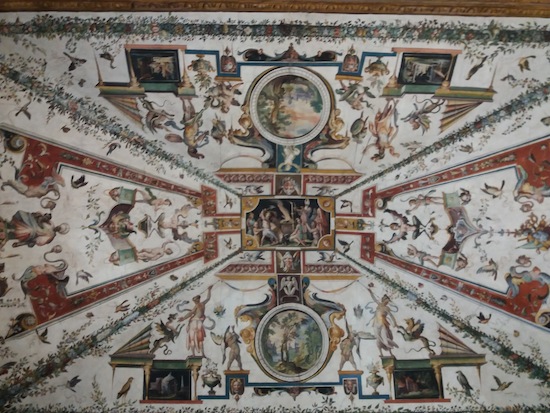
As I mentioned in my last post, I got to explore Florence for a few days, absorbing as much of the Italian Renaissance (and modern pizza) as I could.
So of course I went to the Uffizi Gallery, one of Italy’s most renowned museums. While I knew I would be seeing a treasure trove of Da Vincis and Caravaggios, I didn’t realize that portions of the building itself are a work of art.
Specifically, the ceilings of the upper Eastern Corridor. These are decorated with bright, lively frescoes painted by Alessandro Allori in 1580 and 1581. Each section is a different theme or subject such as military affairs or exploration, and taken together they act as a window into the thoughts and imagination of Florence in the late Renaissance.
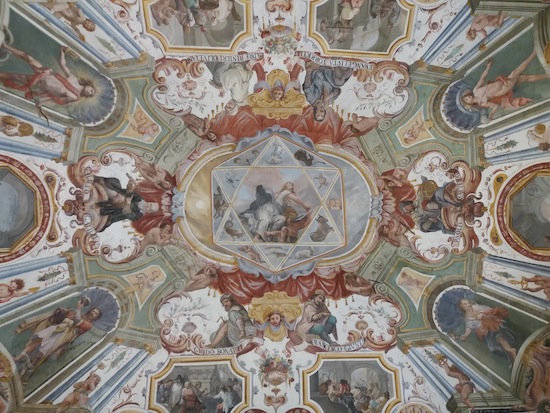
Perhaps the earliest depiction of a D20
The ceiling is painted in the grottesche style, a popular style in 16th century Italy. It takes its inspiration and name from the painted Roman basements of Nero’s palace, discovered around the year 1500 in Rome. After the famous fire in 64 AD, Nero built an immense palace called the Domus Aurea (“Golden House”). It was eventually leveled and covered over, preserving the ornately frescoed basements until someone crashed through the covering by accident and brought it to light to inspire the artists of the Italian Renaissance.
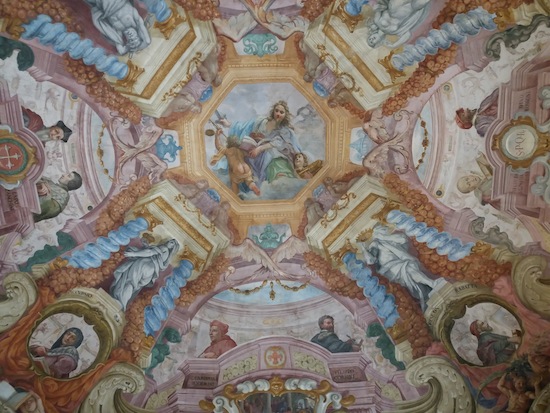
All photos (c) Sean McLachlan. Scroll down for more!
Sean McLachlan is the author of the historical fantasy novel A Fine Likeness, set in Civil War Missouri, and several other titles. Find out more about him on his blog and Amazon author’s page. His latest book, Tangier Bank Heist, is a noir mystery set in the International Zone of Tangier in the 1950s.
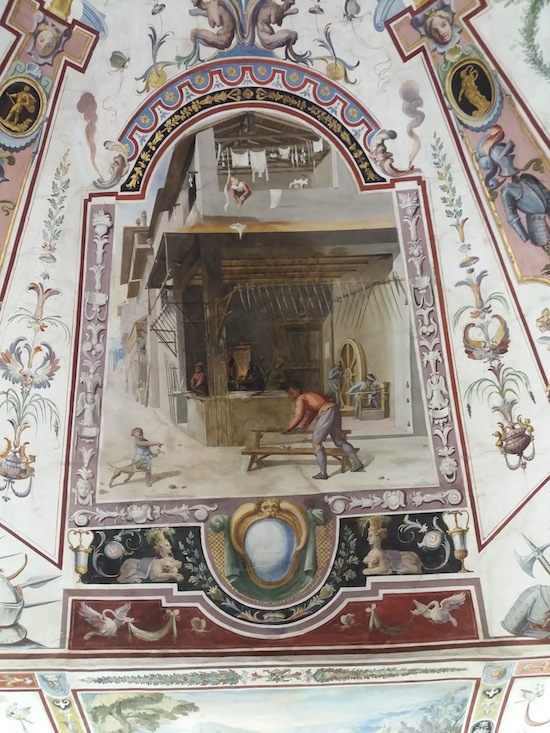
The panels are rich in often humorous detail. Here a sword maker
is hard at work while upstairs someone has dropped their laundry
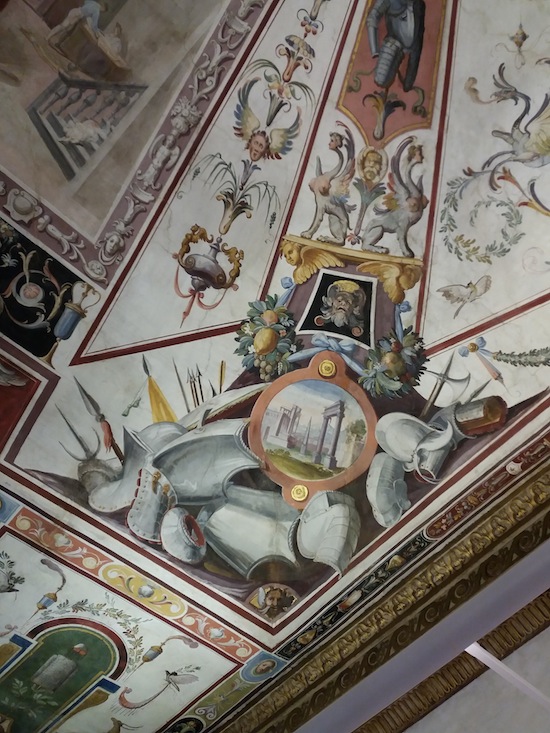
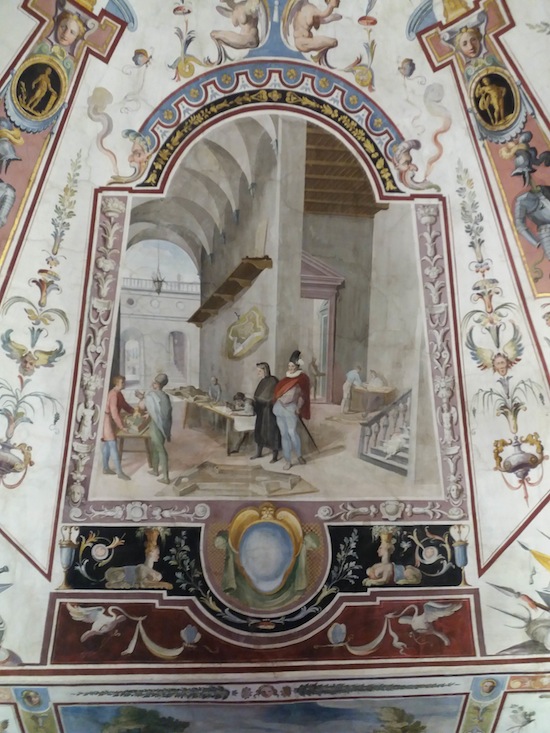
Designing fortifications
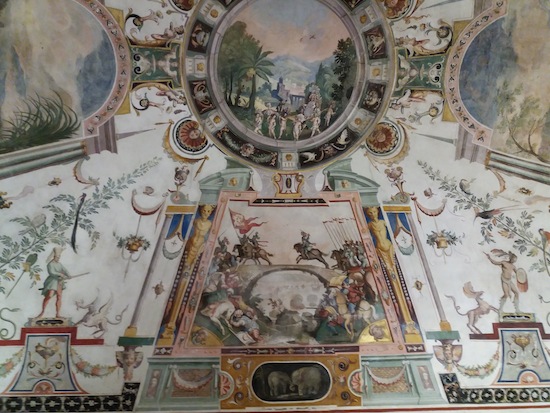
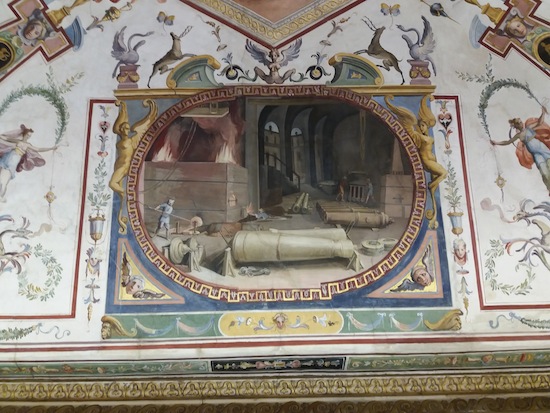
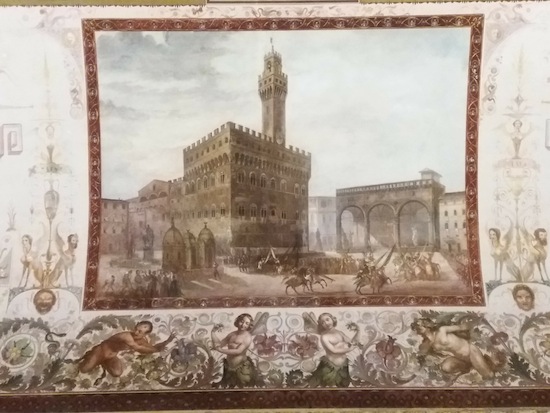
The fortified palace of the Medici family right next to the Uffizi Gallery
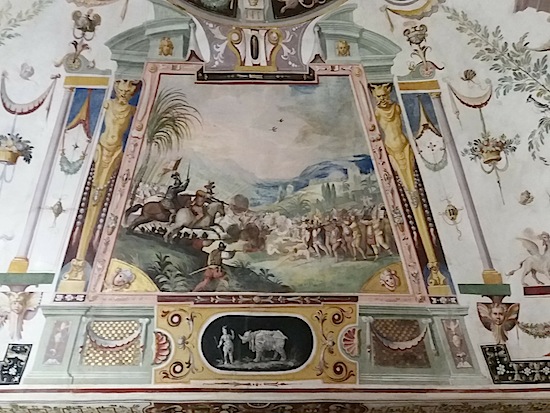
Fighting Native Americans